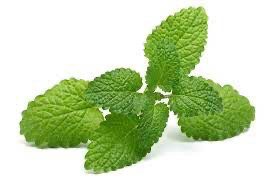

Lemon balm is safe for dogs to eat in moderation and can act as a mood enhancer to remedy depression and stress. However, excessive consumption can lead to nausea, skin irritation, and hypothyroidism.
– Calming and relaxing effects to treat anxiety, depression, and stress in dogs
– Eases digestive issues such as flatulence
– Sedative properties to treat sleep disorders in senior dogs – Antibacterial and antiviral properties to prevent infections
– High concentrations can trigger allergies and cause skin irritation, vomiting, abdominal pain, and nausea in dogs
– Large amounts can cause hypothyroidism
– No long-term studies have been done on its suitability for dogs
– Chop up 1 to 2 teaspoons of fresh lemon balm leaves and add to food
– Brew lemon balm tea and add to food or water bowl
– Use as a hot compress to treat joint issues like arthritis
– Use as a natural repellent spray for fleas, ticks, and flies
Lemon balm is a herb that is commonly used in cooking and as a natural remedy for various ailments. It has a lemony scent and flavor, and is often used to make tea or added to salads and other dishes. For dogs, lemon balm can have some benefits such as calming anxiety and reducing stress. It can also help with digestion and improve overall health.
However, there are also some risks associated with dogs consuming lemon balm. In large amounts, it can cause digestive upset and even liver damage. Additionally, lemon balm should not be given to pregnant dogs as it can cause uterine contractions.
If a dog has ingested a large amount of lemon balm or is showing signs of illness, it is important to seek veterinary care immediately.